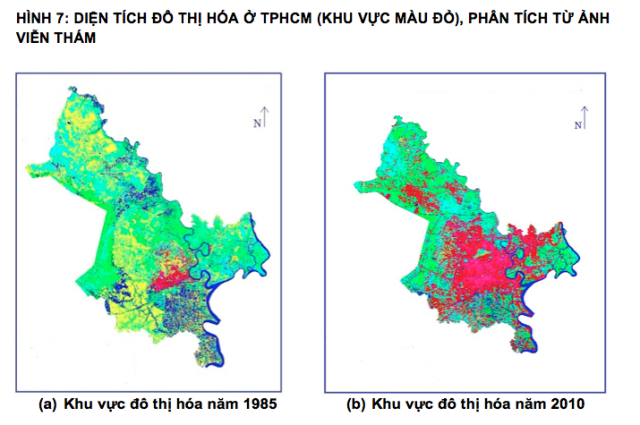Urban Planning and Climate Resilience in the Mekong Delta
- Dr. Stephen Tyler
- Oct 30, 2015
- 3 min read
Above: Flooding in the Mekong Delta in 2050. Source: Southern Institute for Water Resources Planning
The growing problem of urban flooding in southern Vietnam has attracted the attention of the national government, but few practical solutions have been put forward. The combination of rapid urban growth, inadequate infrastructure, land subsidence and climate change all contribute to this challenging problem.
At a workshop held in Can Tho on Oct 27, national, regional and local participants heard that there is no single solution to the problem, and no perfect set of solutions. Multiple actions are needed at different scales, from the community to the ward, district, city, province and regional scale. Contexts and risks vary at different scales, but a crucial gap is the lack of mechanisms for sharing information and collaborative planning between different organizations and scales.
Above: Urbanized areas in Ho Chi Minh City (Red areas) in 1985 (a) and in 2010 (b)
While infrastructure investment is needed, there are limitations to hard infrastructure in solving flooding problems. Dikes may keep water out of one area, but then divert it into another area downstream. And with more intense rainfall, inundation can still occur behind the dikes as it becomes more difficult to drain runoff. With uncertain new climate conditions, dikes may fail. Other flexible measures will also be needed, such as slowing drainage, storing water and allowing for more infiltration, according to Dr Ho Long Phi, of the National University of HCMC. Dr Phi emphasized that cities need to allow more space for water, instead of filling and developing all available land. While flood protection and drainage infrastructure may serve its purpose most of the time, cities need to be prepared for extreme conditions under which it will fail. Engineers, urban planners, disaster managers and vulnerable communities should collaborate to plan and design systems that can fail in a safe and non-catastrophic manner.
Urban development in the Mekong Delta accompanies economic development and the growth of commerce and services. This shift may actually be encouraged by climate change, which may increase risks for farmers and lead to greater rural-urban migration. In each sector, planners develop their own priorities and strategies, but these are not well coordinated and often create unexpected negative impacts, for example as new transportation infrastructure blocks floodway drainage and increases flood risk for affected areas.
The workshop heard that using the concepts and tools of resilience building is a useful approach to deal with the uncertainties of urbanization and climate change. It encourages flexible and diverse approaches that strengthen both infrastructure and ecosystem buffers. But it also encourages innovative approaches to maintain the functionality of urban systems, such as water supply or transportation, even if flooding occurs. A focus on resilience also points to the need for increased capacity of management organizations in order to identify, plan and coordinate implementation measures.
The workshop provided a number of examples of failures in the planning process that led to increasing flood risks in peri-urban areas of Da Nang, Can Tho and Quy Nhon, based on ISET studies conducted with local partners in the past year. In these cases, a major problem was the lack of coordination between different sectors, or between local planning and national level projects. These experiences point once again to the value of new mechanisms, tools and expertise at the local level to support collaborative planning practices that build climate resilience. Practical suggestions were put forward to address some of these deficiencies, but small-scale experimentation and pilot projects are needed to test these and build relevant expertise.
A collection of some of the workshop papers is available on request from ISET by emailing infovn@i-s-e-t.org. For Vietnamese version of this blog, please visit: http://wp.me/p3k22m-ir
For more pictures of the workshop, please visit Can Tho CCCO’s Facebook page.















